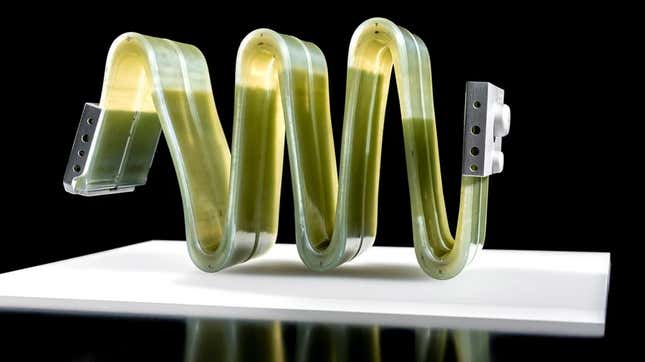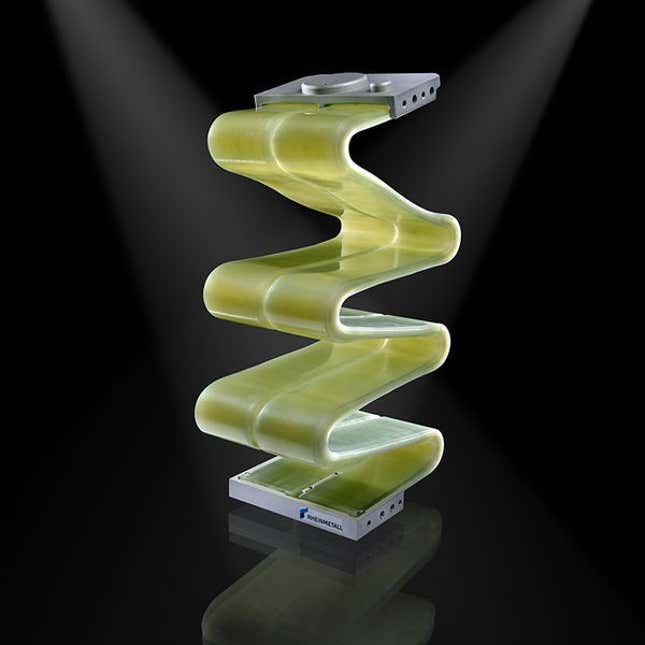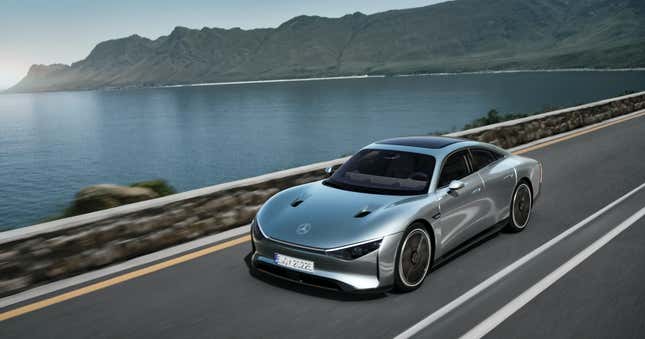
A German automotive supplier has developed an innovation for a critical part in every car. Rheinmetall has invented a suspension spring that’s up to 75 percent lighter than a conventional spring — because it’s made out of fiber-reinforced plastic.
Your car’s suspension does an incredible amount of work. It not only has to suspend a few thousand pounds of steel, it also has to take the impacts of rough roads while providing something resembling a comfortable ride. The humble coil spring is a marvel of engineering, one that has almost universally been made out of steel. As first reported by The Drive, German auto supplier Rheinmetall thinks it’s time for a change.

The supplier says it has developed and tested a prototype for a potentially revolutionary spring made of fiber-reinforced plastic. Rheinmetall says this design has a ton of advantages over steel. And a “premium automaker” has already placed an order for these lightweight springs, meaning this technology could come to showrooms sometime soon.
This isn’t the first time fiber-reinforced plastic (FRP) has been found in car suspension designs. Corvettes have used FRP leaf springs for years, and Audi played around with the idea of plastic springs back in 2014. But this is the first time we’ve seen a plastic spring that could feasibly replace the conventional steel coil spring in everyday production cars.
Rheinmetall says its FRP springs are up to 75 percent lighter than a steel spring while offering a greater variety in spring design. The company says that its FRP material has high inherent damping properties, too, which should help with noise, vibration and harshness. But perhaps the best selling point is that these springs won’t rust, and they can fit into the same space as existing steel springs. The new spring has already found its way into the Mercedes-Benz Vision EQXX concept.

Rheinmetall says its FRP springs were presented to the public in an unnamed automaker’s test vehicle. While Rheinmetall and the unnamed automaker are both sworn to secrecy, the springs apparently passed extensive testing, and were accepted by the automaker for potential production use. However, it’s unclear when we might see this technology in a mainstream automobile.